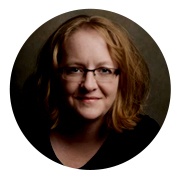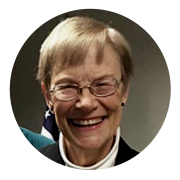
Get technical English training from IEEE. A not-for-profit organization, IEEE is the world's largest technical professional organization dedicated to advancing technology for the benefit of humanity. IEEE Continuing and Professional Education courses are designed to help engineers stay up-to-date on the latest technologies. Produced and vetted by leading experts, you can count on IEEE Continuing Education courses to equip you with the information you need to stay current in your field.
IEEE English for Technical Professionals
With English considered the primary language used for engineering communication, engineers and other technical professionals need to be able to communicate effectively with their counterparts internationally. This course program is designed to provide non-native English speakers with a working knowledge of English techniques and vocabulary that are essential for today’s technical workplace.
Highlights of the Program:
- Each lesson includes modules on reading, writing, listening, speaking skills with a newly added speech-to-text enhancement
- Recurring characters bring the lessons to life as they interact with each other and the learner through animated business scenarios
- Short assessments and exercises throughout each lesson to help improve skills, with a final test at the end of each lesson
Upon successful completion of IEEE English for Technical Professionals, your engineers will receive valuable CEUs/PDHs from IEEE that can be used to maintain engineering licenses.
Course Program Details
This 18-hour online learning program covers the following topics:
The Basics
Reading company documents, speaking appropriately with colleagues, developing relationships
Business Documents, Questions, and the Technical Pursuit
Interpreting business documents, technical language, understanding and asking questions
Engineering Concepts and Complexity
Understanding engineering concepts, acronyms, adjective clauses
The Future Tense for Technical Work
Communicating in the future tense, using contractions appropriately
White Papers; Modifiers and Qualifiers
Describing technical components, understanding qualifiers in lectures, expanding sentences with qualifying phrases, order of adjectives
Making Recommendations; Interpreting Data; Ethical Persuasion for Technical Projects
Recognizing concession and redirection expressions, phrases of data integration, integrating data
Cause and Effect; Calls for Proposals
Cause and effect statements, reading proposals and calls for proposals, basic punctuation formulas
Technical Complexity in Communication
Using technical content, working with unfamiliar technical terms and details, restatements and paraphrases, units of measurement
Numbers, Plain English, Jargon, and Technical Terms
Working with numbers; identifying technical terms, jargon, and buzzwords; finding solutions for complex writing using plain English; using style guides
Active and Passive Structures
Using active and passive voice constructions as needed for specific technical contexts and communication
Organization Needs; Seeing the Big Picture; Negotiating
Appropriate terminology and tone used for public messaging, workplace social hierarchy, and management; interpreting organizational needs, expectations and benchmarks in written materials when project planning
Audience Needs and Assessment; Standards Versus White Papers; Objectivity
Communicating effectively in group meetings and with specific audiences, recognizing speaker’s intent, strengthening written positions, formatting data/reference tables, differences between standards and white papers
Communicating within Expected Genres, Identifying Trustworthy Sources or
Bias in Technical Work
Differences in informational patterns in work and research documents, vetting
sources, negotiating between perspectives, using plain language when possible,
recognizing speaker intentions/priorities on conference calls, techniques to navigate gaps of cultural miscommunication
A Review of Major Course Takeaways
Compilation of important reading, listening, writing, and speaking strategies with supporting outside resources
Meet the Instructors

Traci Nathans-Kelly
Traci Nathans-Kelly, PhD, currently teaches in Cornell University's College of Engineering in the Engineering Communications Program. Previously, she worked at the University of Wisconsin-Madison's College of Engineering in the Technical Communication program. She teaches technical/engineering communication, technical/engineering presentations, technical editing, writing user manuals, and other topics. She also served Wiley-IEEE Press as the series editor for the Engineering Professional Communication line and as the IEEE Press Liaison for the IEEE Professional Communication Society. Inside IEEE, she serves on the Educational Activities Board in the Continuing Education division. She has worked with practicing professional engineers, technical experts, scientists, and related field experts for over 20 years, helping them to strengthen their abilities to become impactful contributors in their organizations. She has conducted workshops and training for such entities as The Boeing Company, Flad Architects, IEEE-USA, Wolters Kluwer, and a host of others. In the past, she has trained practicing engineers and technical experts at AT&T, CN Railroad, FedEx, GE, Google, Harley Davidson, IBM, Intel, John Deere, Johnson Controls, Kohler, Kraft, Lockheed Martin, Medtronic, Mercury Marine, Motorola, NASA, Ocean Spray, Sanofi Pasteur, Sirius, SkullCandy, US Bureau of Indian Affairs, the US Department of Defense, the US Army, the US National Security Agency, the US Navy/Nuclear Submarines Development Unit, and many more.

Susan Matson
Susan Matson, curriculum specialist, has over 35 combined years of teaching and curriculum development related to ESL learning. She was a Teaching Fellow for the U.S. Department of State in Eastern Europe as well as National Director of Curriculum for a multi-site Intensive English Program in the U.S. Her teaching experience has included working professionals as well as university-bound non-native speakers of English in multiple settings. She received her M.S. in Education from Johns Hopkins University and ESL Certification from American University in Washington, DC.

